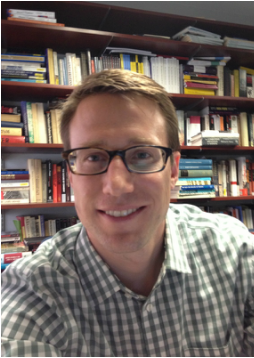Stephen G. Gross
Welcome!

I joined the Center for European and Mediterranean Studies and the Department of History at New York University in 2012 as an Assistant Professor. After completing my PhD at the University of California at Berkeley, I lectured there with the International and Area Studies Program for a year, teaching courses on contemporary theories of political economy, economic history, and comparative European history.
I'm just now embarking on a new book project tentatively titled German Energy Policy in the Age of Oil and Atoms, 1945–2010. This book traces how after 1945 Germans crafted an energy policy that suited a nation heavily dependent on foreign oil and foreign multi-national corporations, and that ultimately enabled their country to become a leader in renewable energies and energy savings technologies. German Energy Policy will explore the political economy of energy crises and transition, tracing how this oil-poor yet highly industrial state managed the transition from coal, to oil, to more renewable fuels, how it negotiated the many intense political and social tensions that came with this transition, and how it inaugurated what is now called the German Energiewende, or revolution to Green energy. By combining an exploration of the material interests involved in the energy sector with newly emerging ideas and scientific paradigms that justified energy decoupling and renewable energies, this project aims to provide a more complete understanding of current energy policies in Germany and Europe. My research on German energy has been supported by the Andrew Carnegie Fellows Program, the Andrew Mellon New Directions Program, and the Institute for New Economic Thinking.
More generally, my research and teaching interests are in 20th century Germany, European unification, European economic history, international political economy, and international relations more broadly. My first book Export Empire: German Soft Power in Southeastern Europe 1890-1945 (Cambridge: Cambridge University Press, 2015), explores the relationship between imperialism, economic development, and cultural exchange from the standpoint of non-state actors like trade fairs and professional exchange programs. I’ve also published on wartime financial policies and non-state organizations in Central European History, Contemporary European History, German Politics and Society, Eastern European Politics and Society, and in book chapters. I’ve been fortunate to have had support from the US Fulbright Program, the Berlin Program for Advanced German and European Studies, and the Deutscher Akademischer Austauschdienst (DAAD) for my archival research in Berlin, Leipzig, Dresden, Essen, and Koblenz.

